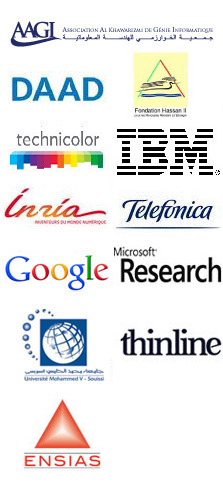Keynote Talks
Titles:
I- “P2P, DSM, and Other Products of the Complexity Factory“, Willy Zwaenepoel. (Slides)
II- “Warp Speed: sub-Saharan Africa and future technologies“, Jonathan Ledgard. (Slides)
III- “Programming in the Big Data Era“, Mira Mezini. (Slides)
Details :
| I- P2P, DSM, and Other Products of the Complexity Factory
Willy Zwaenepoel is Professor and Dean of the School of Computer and Communication Sciences at EPFL in Lausanne, Switzerland. He received his BS/MS from the University of Gent, Belgium, in 1979, and his MS and PhD from Stanford in 1980 and 1984, respectively. In order to get your paper accepted at a major conference, the idea you develop in the paper must be complex, preferably even incomprehensible to all but the few experts. In order to have your idea have any impact in a real system, it must be simple and comprehensible to the above-average programmer in industry. The obvious net result of this contradiction is that very few papers at major conferences have any impact in real systems. This talk will explore some examples of this dilemma, some counterexamples of ideas that were successfully transferred to practice, and some ideas on how we can perhaps improve the situation.
|
|
| II- Warp Speed: sub-Saharan Africa and future technologies
Jonathan Ledgard is a leading thinker on political and environmental risk and technology in Africa. A longtime Africa Correspondent for The Economist, he is fellow of future Africa at EPFL. He has reported from 50 countries and several wars for The Economist and published two international acclaimed novels, Giraffe (2007) and Submergence (2012). The technology choices sub-Saharan African countries make over the next decade will help determine whether they become competitive or unmanageable. In this talk we will examine new security and environmental opportunities for Africa in a networked age of climate change and rapid population growth. We will also think beyond ICT to identify areas where science could provide a paradigm shift, including robotics, solar, materials, complexity thinking, and deep knowledge on digital (deed). |
|
| III- Programming in the Big Data Era
Mira Mezini is a professor of computer science with the School of Computer Science at Technische Universitaet Darmstadt in Germany. She received her diploma degree in computer science from Tirana University, Albania and her Ph.D. degree in computer science from University of Siegen, Germany. Prior to joining the faculty of computer science at Darmstadt University of Darmstadt, she was Assistant Professor with Northeastern University in Boston, USA. Her research interests include software development paradigms, adaptable software architectures, software product-line engineering, service-oriented architectures. She is author or coauthor of over 100 scientific publications, member of steering committees or editorial boards of several international conferences and journals in the areas of software engineering and programming languages, and received several awards, such as IBM Faculty Award (2005), IBM Eclipse Innovation Award (2006), and more recently an ERC Advanced Grant. With cloud computing the Internet is becoming both the computer and the software. The Internet-as-the-computer offers massive data storage and computing power and empowers applications to process big amounts of data scattered over the cloud and to react to events happening across the cloud. The Internet-as-the-software enables applications to integrate features as services, often used in a multi-tenant mode. But, how does this effect software development? In the talk, I will consider the relationship between software development and cloud computing (big data) as a symbiosis. In the first part, I will argue that cloud computing challenges software development and will briefly outline ongoing work on advancing programming abstractions to make the cloud easier to program in the future. In the second part, I will discuss how cloud computing in turn can be employed to facilitate software development today. |
Dates
January 15, 2013
Abstract submission deadline
January 28, 2013 (23:59 Hawaii time)
Submission deadline
March 21, 2013
Acceptance notification
April 21, 2013
Camera ready copy due







